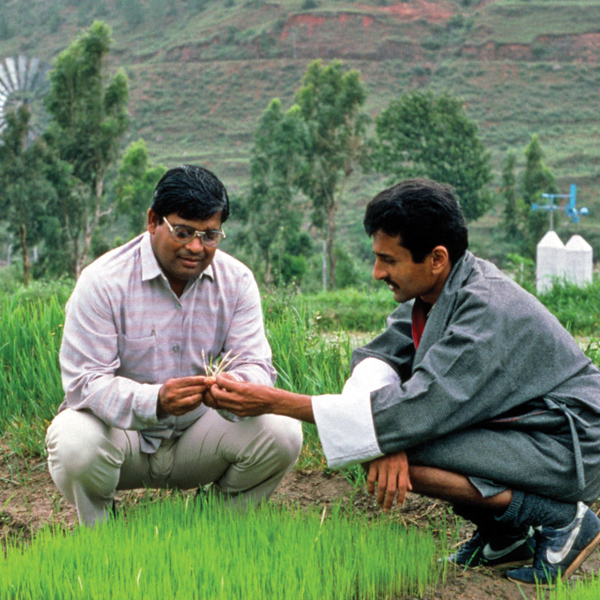-
Grants
12
-
Impact Investments
1
-
Total Awarded
$4,145,779
-
Years
1984 - 2024
-
Categories
Grants and Impact Investments
First Nations Development Institute, founded in 1984 and based in Longmont, CO, invests in and creates innovative institutions and models that strengthen asset control and support economic development for American Indian people and their communities. First Nations improves conditions for Native Americans through technical assistance, training, advocacy, policy, and direct financial grants. This X-Grant provides support to their Stewarding Native Lands convening.
First Nations Development Institute, founded in 1984 and based in Longmont, CO, invests in and creates innovative institutions and models that strengthen asset control and support economic development for American Indian people and their communities. First Nations improves conditions for Native Americans through technical assistance, training, advocacy, policy, and direct financial grants. In addition to their core programming, First Nations has three streams of work under the umbrella of their ‘Knowledge Center’ focused on Philanthropy in Indian Country: research and training on how to support Indigenous communities; community building for Native Staff and Board members in philanthropy and nonprofits; and trainings to support Native fundraisers and development professionals. This grant supports the general operations of First Nations Development Institute.
The First Nations Development Institute (FNDI) is a national nonprofit that improves economic conditions for Native Americans through technical assistance and training, advocacy and policy, and direct financial grants. It has been leading a new national initiative, Reclaiming Native Truth, to dispel myths and misperceptions about, and promote greater inclusion of, Native Americans in the media, civil society and policymaking. This grant supports a case study to document lessons learned from Standing Rock. The fight against the Dakota Access Pipeline at Standing Rock generated unprecedented national global awareness and support for the rights of Native Americans. FNDI will examine the role citizen journalists, as well as mainstream and alternative media, played in shaping narratives and influencing public support at Standing Rock.
To support the journal "Native Americas" (over three years).
To protect the human rights of indigenous peoples by designing economic models for culturally and environmentally appropriate community development.
To protect the human rights of indigenous peoples by designing economic models for culturally and environmentally appropriate community development.
In support of general operations of the project, which tests alternative economic approaches for Native Americans living on reservations.
Program-related investment to enable the Oweesta Fund to capitalize reservation-based microenterprise funds, make deposits linked to economic development efforts by financial institutions and lending serving Native Americans, and provide partial financing for field projects serving Native Americans.
To support policy research studies and regional field operations.
To support policy and research programs and to expand and establish regional field offices in the Southwest and Midwest United States.
In support of general operations.
To support a research data bank and a policy forum to promote tribal economic self-sufficiency among specific American Indian tribes and communities.
To support policy-oriented study and research to assist several American Indian nations in decreasing tribal dependency on federal and other outside funds.








